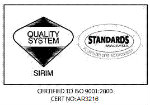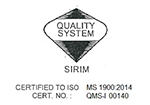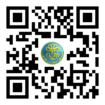Muslims Must Change Mindset to Constructive Thinking
Ever since the time of the Greeks about 2,000 years ago, philosophy had been a means of understanding the scheme of things.
The word contains many secrets which are known only to its Almighty Creator.
Curiosity on the part of mankind brings forth an urge to know, understand and, perhaps, ultimately control these secrets.
The secrets of the world make up the invaluable treasure that we have come to know as knowledge or ‘ilm.
Man wants answers to questions on things he does not understand. Questions that begin with who, what, when, why, where and how are very common.
These questions hold the key to the quest for knowledge amongst mankind. To seek knowledge, man has to think. God has bestowed mankind with the gift of intelligence–a gift that is not given to any other creation. Man seeks knowledge using this intelligence.
Seeking knowledge will ultimately lead to the truth. That is the aim of obtaining knowledge–to understand the truth shrouding the secrets of the world.
Islam encourages mankind to seek the truth. Islam even gives mankind a helping hand in doing this in the form of a guiding light, the Quran.
The Quran virtually holds all the keys to all questions that mankind has.
Over the past 1,400 years since Prophet Muhammad began receiving revelations from God, science has proven many things in the Quran to be true.
Examples can be found in biology, physics, chemistry and astronomy.
That is why Muslims regard the Quran as one of the great miracles or mukjizat of Prophet Muhammad.
However, it must be noted that the knowledge found in the Quran has to be extracted by man.Man has to study the verses in the Quran to understand its message and obtain answers to his questions.
About 10 years ago, an Egyptian physicist, Dr Mansour Hassan Elnaby, went to the Quran to calculate the speed of light.He referred to verse five of Surah al-Sajdah which states: “He rules (all) affairs from the heavens to the earth: in the end will (all affairs) go up to Him, on a day, the space whereof will be (as) a thousand years to your reckoning.”
The last part of the verse that said to the effect “on a day, the space whereof will be (as) a thousand years to your reckoning” was used by Dr Elnaby in an astronomical equation to calculate the speed of light.
This verse virtually gives an equation that states that “a day is equal to a thousand years”.
Interestingly and perhaps not surprisingly, the figure for the speed of light (the constant ‘c’) that Dr Elnaby found is equal to that given by the US National Bureau of Standards and the British National Physical Library.
Muslims should take this as a cue to study the Quran in greater depth. Who knows what other secrets are awaiting discovery?
Merely reading the Quran is not enough. Efforts should be taken to understand its contents.Muslims should put on their thinking caps and try to understand the message being relayed to mankind by God.
One of the apparent weaknesses of Muslims is the inability or, perhaps more accurately, the reluctance to think.
There are countless verses in the Quran that urge mankind to think. For instance, in Surah al-Ghashiyah verses 17 to 20, God says to the effect: “Do they not look at the camels, how they are made? And at the sky, how it is raised high? And at the mountains, how they are fixed firm? And at the earth, how it is spread out?”
The way these particular verses are presented are in the form of questions. These questions require us to think so that we will search for the answers. This is, in effect, the road to acquiring wisdom. Wisdom stands at the peak of the knowledge hierarchy. People who have wisdom will be able to understand many secrets of the world.
Again, the Quran touches on this matter, as in verse 269 of Surah al-Baqarah: “He (God) grants wisdom to whom He pleases, and he to whom wisdom is granted receives indeed a benefit overflowing.”
Today, efforts should be taken to encourage the Muslim ummah, in particular, to become a thinking society once again.
During the height of the Muslim civilisation, Muslims were known to be great philosophers, thinkers, scholars and innovators.
However, complacency and, probably, ego in having knowledge led to the downfall of the Muslim civilisation about 900 years ago.
The fall of the Muslim civilisation coincided with the European Renaissance in which Europe rose from the Dark Ages into an age of enlightenment.
Muslims today tend to be pessimists and regressive in nature. This may be due to the way in which they think.
Muslims tend to leave it to fate or taqdir when doing something. While everything that we do is fated, Muslims usually fail to understand the need and importance to work hard towards realising their goals.
Initiative to make something happen is necessary. After we have done everything that is possible, only then should we leave it to fate (or being in the state of tawakkal).
This is the right concept and approach from the Islamic point of view.
Therefore, Muslims must change their mindset and the way of thinking from that of negative thinking to positive thinking.Better still, Muslims must engage in constructive thinking whereby our thoughts are translated into constructive actions.
For instance, if a Muslim is given a copy of the Quran, he may frown at the thought of reading it. No doubt this is negative thinking.
However, if he accepts the Quran and reads it, then this is indeed something positive.
Yet, if he goes one step further by studying and making efforts to understand the Quranic message, then this is what is known as “constructive thinking”.
The renowned scientist Albert Einstein once noted that “everything has changed except our way of thinking”.
His words ring true in particular with regard to the Muslim ummah.
The Muslim way of thinking is still the same and it is hindering Muslims from becoming successful, not only in this world but also in the next.
It is high time that Muslims reinstate themselves as the thinking ummah in order to move forward in this ever-challenging new millennium.
And to ensure that Muslims are ahead, they will have to shift gear to become a “constructive thinking” ummah.




